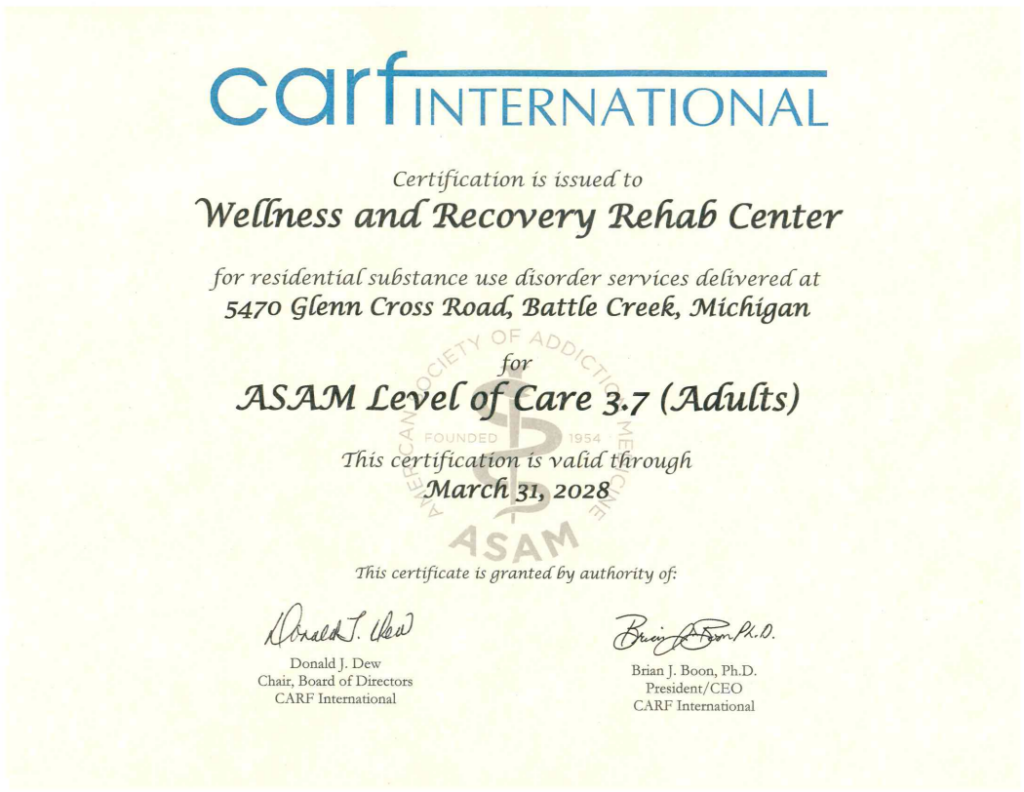
Medical detox centers provide safe withdrawal management. Explore how they offer emotional support and guide individuals toward rehabilitation.
When someone develops a dependence on substances, their body starts to slowly adjust to their effects, and stopping abruptly can cause a range of physical and psychological reactions.
"At Wellness and Recovery, patient safety and comfort are our top priorities during the detox process. Our medical team conducts thorough assessments to tailor each patient’s detox plan, which may include medication-assisted treatment (MAT) to alleviate withdrawal symptoms and reduce cravings. We provide 24/7 medical monitoring to address any complications promptly and ensure a stable, comfortable environment. Additionally, our staff offers emotional support and counseling to help patients manage the psychological aspects of withdrawal, creating a foundation for the next steps in their recovery journey."

Medical detox centers are clinical facilities that offer 24/7 medical supervision. They are equipped to handle complex cases, including those involving severe addiction or co-occurring mental health disorders.
Social detox lacks the medical oversight that is necessary for high-risk cases, which is why it is only suitable for people with mild addiction or minimal withdrawal symptoms.
Detox is not a standalone treatment for addiction – rather, it is a critical first step in the recovery process. Attempting to quit drugs or alcohol without professional detox support can lead to relapse and dangerous medical emergencies.
Medical detox centers provide a structured transition from active substance use to sobriety, allowing individuals to begin rehabilitation with a stronger foundation.
If you or a loved one is ready to take the brave first step toward recovery, know that we’re here—from detox to inpatient to outpatient treatment and long-term healing.
Below are some of the most common types of substance use disorders (SUD) that can be treated at medical detox centers:

When alcohol use suddenly stops after prolonged use, the central nervous system becomes hyperactive.

Withdrawal from short-acting opioids, such as heroin, often starts within 8 to 24 hours of the last dose, while longer-acting opioids, like methadone, may take 12 to 48 hours to trigger symptoms.
These symptoms often last anywhere from 4 to 20 days and typically include:5
While opioid withdrawal is not typically fatal, complications such as dehydration, elevated heart rate, and high blood pressure can pose serious risks.
Stimulants, including cocaine and prescription amphetamines, affect dopamine levels in the brain. When stimulant use stops, dopamine levels drop drastically, leading to a withdrawal phase known as the “crash.”
"When choosing a detox center, patients should prioritize facilities that offer medical supervision, individualized care plans, and a comprehensive approach to recovery. At Wellness and Recovery, we emphasize the importance of a safe, medically managed detox process, as withdrawal can be physically and emotionally challenging. Patients should also look for centers with licensed medical professionals, evidence-based treatment protocols, and a focus on transitioning to further care, such as inpatient or outpatient rehab. A reputable detox center will provide a supportive environment, transparent communication, and a clear plan for long-term recovery."
The goal is to set individuals up for sustainable recovery by recognizing the broader factors influencing their well-being.

During detox, the sudden absence of substances can leave individuals feeling emotionally raw, overwhelmed, or uncertain about the next steps.
Counseling and group sessions provide an essential space for processing emotions, understanding addiction, and beginning to develop coping strategies.
Some therapeutic options available in detox centers include:
One-on-one counseling sessions allow individuals to explore the underlying factors contributing to substance use.
This can include:
Substance use disorders deplete essential nutrients from the body, leaving individuals physically weak. Restoring health through proper nutrition and hydration ensures that the body has the strength to recover.
Hydration therapy is equally vital, as dehydration can intensify withdrawal symptoms such as:
In some cases, IV fluids and electrolyte replacement are necessary to correct imbalances and prevent complications.

Managing withdrawal safely requires expert care and a structured approach. At Wellness and Recovery, our multidisciplinary, Battle Creek, Michigan team here to ensure that everyone who walks through our doors gets the care and support they need.
With us, you can expect:
At Wellness and Recovery, we create a supportive environment to ease the stress associated with detox. Every element promotes comfort and healing, from thoughtfully furnished living spaces to soothing common areas.
Art therapy provides a non-verbal outlet for processing emotions. Patients can explore their feelings, reduce stress, and engage in a therapeutic process that fosters self-discovery through painting, drawing, or sculpting.
Yoga supports physical and mental well-being by calming the nervous system and promoting relaxation. Gentle movement and breathwork help ease withdrawal symptoms like muscle tension, restlessness, and anxiety.
Yoga also promotes emotional resilience, fostering mindfulness and inner balance that can be beneficial throughout recovery.
Music therapy promotes emotional release and reduces feelings of isolation by harnessing the power of sound.

"At Wellness and Recovery, we believe detox is just the first step in a comprehensive recovery process. Our detox program is designed to seamlessly transition patients into the next level of care, whether that’s inpatient rehab, outpatient treatment, or aftercare. We coordinate closely with our clinical team to ensure that each patient’s treatment plan is consistent and tailored to their needs. By integrating detox with therapies like cognitive behavioral therapy (CBT) and dual diagnosis treatment, we address both the physical and psychological aspects of addiction, setting patients up for long-term success in their recovery journey."
A PHP serves as an essential bridge between intensive care and independent living. The program allows patients to attend treatment sessions during the day and return home in the evenings.
Our PHP at Wellness and Recovery involves comprehensive therapy sessions, including:
As individuals progress in their recovery journey, they often benefit from the flexibility of an IOP. This level of care allows for continued therapy while enabling individuals to resume work, education, or family responsibilities.
Our outpatient drug program ensures that recovery remains a priority, even as individuals reintegrate into society and pursue their personal and professional goals.
If you or someone you love is ready to begin a healthier future, reach out today. Your path to renewal and freedom starts now.
